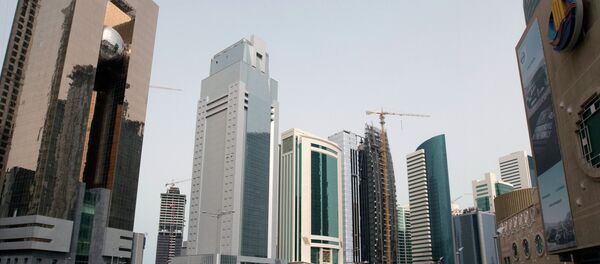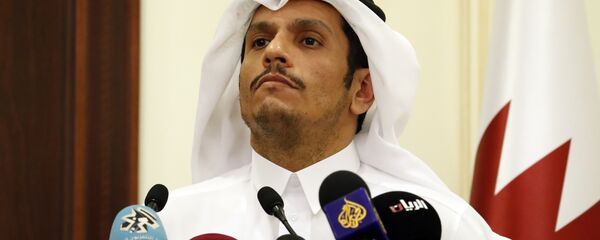Kristian Rouz — Roughly one year into the diplomatic crisis between Qatar and the Saudi-led "quartet" of Arab nations, there is little hope the standoff will end anytime soon.
Whilst Qatar is hoping to revive its economy by boosting bilateral economic ties with the US, its Arab neighbors have no plans to end their pressure campaign, claiming they are seeking to curb Doha's alleged financing of terrorism once and for all.
READ MORE: 'Huge Problems': Expert Explains What to Expect From Hosting World Cup in Qatar
Four Arab countries — including Saudi Arabia, Egypt, Bahrain, and the UAE — slapped a total embargo upon Qatar almost a year ago. The "quartet" has accused Doha of paying ransom to what they consider Islamic terror groups active in the Middle East — thus contributing to the financing of international terrorism.
Whilst the US has attempted to mediate a diplomatic solution aimed at reconciling the Arab nations and settling tensions in the Gulf region, such efforts have produced little result so far. Bahraini officials said Sunday they don't see a pathway to resolving their feud with Qatar at this point.
"The information in our hands today does not indicate any glimmer of hope for a solution now, as the matter does not happen suddenly," Bahrain's Foreign Minister Sheikh Khalid bin Ahmed al-Khalifa said.
Qatar recently imposed a sudden ban on the import of goods from the "quartet" — despite all trade ties having been severed a year ago. Qatar's economy ministry said any goods from Saudi Arabia, Egypt, Bahrain, or the UAE would be confiscated if smuggled into the country or otherwise happen to appear on the Qatari consumer market.
READ MORE: Qatar Continues Spending Spree to Bolster Military Against Saudi-Led Bloc
According to several reports, the Qatari economy has struggled under the total embargo, not least due to the logistical complications — as most consumer goods were shipped into Qatar through either Saudi Arabia or the UAE.
Prices on food and transportation have skyrocketed, whilst Qatar's foreign financing and business reserves declined by some $40 billion. This despite the Qatari government allocated some $200 billion from the oil-rich nation's reserve fund into massive infrastructure development over the past year.
"Qatar has no option but to diversify its economy," Qatari Minister of Development Planning and Statistics Dr. Saleh Mohamed Salem al-Nabit said. "To achieve this, we must continuously work to increase efficiency and productivity and improve our international competitiveness. These results show us where we need to increase our efforts and improve further."
For his part, Bahraini Foreign Minister Sheikh Khalid also blasted Qatar for trying to get the US involved in the crisis. He said Doha should've engaged in direct negotiations with the "quartet" beforehand.
"We were expecting from the beginning of the crisis with Qatar that the Emir of Qatar would go to the Saudis, but this did not happen," he said.
Although the crisis appears set to continue, US-Qatari business and investment ties remain solid. This despite Saudi Arabia — another major US ally in the Middle East — accusing Qatar of supporting Iran's foreign policy agenda, which could potentially hurt US interests in the region.
READ MORE: Doha Asks Moscow to Apply for Further Development of Qatari Gas Fields — Envoy
"We are pleased to host dialogues that will create jobs and investment opportunities for both countries," Mohammed Barakat of the US-Qatar Business Council said. "Qatar is already a strong business partner of the United States in the Gulf, with trade between our two countries valued at $125 billion and this number is predicted to double."
In this light, the US is expected to maintain good bilateral relations with all its Middle Eastern allies, regardless of the infighting between the Arab countries.





